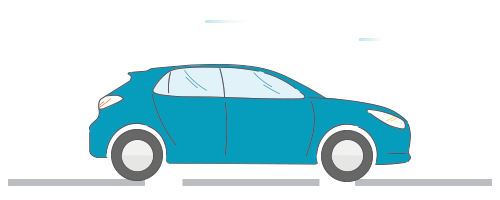No, we buy cars that have missing parts. However, we may ask for information about any missing parts. You should declare any missing major parts to us as this can affect your quote.
These explanations should help you.
Your car is complete if all minor and major parts are present. Don’t worry about the odd missing wheel trim, interior trim, body trim, badge, parcel shelf, aerial, spare wheel or aftermarket audio player, but these should not be excessive in number.
Major parts are those which may have a value when recycled, such as the engine, electronic control unit, gearbox, bodywork, seats, battery, catalytic converter and wheels. The catalytic converter must be an Original Equipment Manufacturer (OEM) version, as opposed to an aftermarket replacement.
Minor parts are the essential components needed to pass an MOT, such as the lights, mirrors, wipers, steering, braking, suspension, safety and emissions components.
After you’ve got your quote you’ll have the opportunity to discuss your quote and provide further details.




